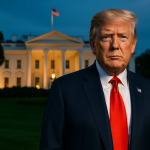Tesla (NASDAQ:TSLA) finds itself navigating challenging terrain as institutional investors call for Elon Musk’s increased involvement, highlighting sales drop-offs in critical markets. The company’s trajectory appears tethered to Musk’s engagement, prompting shareholders to reassess its dynamics. With mounting pressures from within and outside Tesla, Musk must balance diverse commitments while meeting evolving automotive industry demands. Recent pledges by Musk to sharpen his focus on Tesla signal potential strategy shifts, keeping stakeholders attentive to his next moves.
Years prior, Tesla was celebrated as Musk’s crown jewel, with its innovative designs capturing global attention. Recent reports, however, portray a brand facing sliding sales and stock value volatility. These dynamics have sparked investor concerns, as Musk’s diverse ventures expand his focus beyond Tesla’s core business. Stakeholders envision Musk’s heightened presence as a key to reinstate market confidence and stability amid industry evolution.
What Do Investors Demand From Musk?
A collective of Tesla’s major shareholders has penned a letter urging Musk to allocate a minimum of 40 hours weekly to Tesla, underscoring the need for concentrated leadership.
“The current crisis at Tesla puts into sharp focus the long-term problems at the company stemming from the CEO’s absence, which is amplified by a Board that appears largely uninterested and unwilling to act in the best interest of all Tesla shareholders by demanding Musk’s full-time attention on Tesla,” the letter said.
How Does This Align With Tesla’s Future Plans?
The board’s consideration of a new compensation plan for Musk follows a Delaware court’s dismissal of his previous $56 billion pay agreement. Such plans are contingent upon his dedicated leadership, a stance reinforced by stakeholders advocating for consistent CEO engagement.
Meanwhile, Musk’s multifaceted leadership portfolio extends to other ventures like SpaceX and Neuralink, raising questions about prioritization. With each venture seeking equal focus, investors emphasize Tesla’s necessity as more than just one of Musk’s many commitments.
Despite these concerns, Musk reaffirmed his commitment to Tesla, emphasizing a renewed focus post his governmental efficiency role. This refocused dedication could reshape Tesla’s operational landscape amidst investor apprehension.
Tesla’s shareholder composition includes notable institutional investors like Vanguard and BlackRock, with pension funds holding approximately $3 billion, which accents their collective influence over company strategy.
With Tesla situated at this pivotal juncture, investor appeals highlight a broader narrative of adapting and refocusing corporate leadership. While Tesla remains a flagship innovation case, the company’s success heavily relies on Musk’s ability to solidify his role amid his multifarious responsibilities. Accommodating evolving market dynamics while maintaining innovation remains critical for Tesla’s sustained growth and stakeholder assurance.










